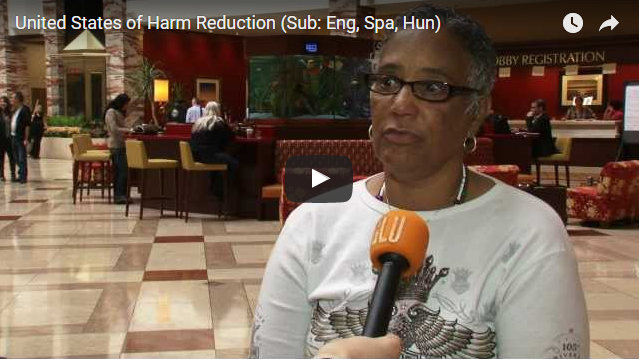What does harm reduction mean to harm reduction activists in the US? How do they see the future of harm reduction? Watch the HCLU’s new movie and find it out!
Although most decision makers and professionals acknowledge the value and effectiveness of harm reduction interventions in reducing drug-related crime, death and disease, the term itself and the philosophy behind the term is still viewed as controversial in the US. Many Americans share the views of the Partnership for a Drug Free America, a zealot prohibitionist organization, who claim that harm reduction is a Trojan horse for drug legalizers and it makes people believe that drug use can be safe. While the interventions labeled as harm reduction interventions – such as opiate substitution treatment or needle and syringe distribution programs – are now accepted as integral parts of a comprehensive social and health care system, government officials and strategic policy documents still avoid using the term ‘harm reduction.’ At the Commission on Narcotic Drugs (CND), the central drug policy making body of the United Nations, the US delegation now openly speaks for needle exchange, yet it is still a fierce opponent of the term harm reduction in any official statements or resolutions. It seems the United States accepts the practice of harm reduction but refuses the theory of harm reduction.
Our movie shows another US: the United States of Harm Reduction. In November last year we asked many activists, outreach workers and service providers who attended the 8th National Harm Reduction Conference in Austin, Texas what harm reduction means to them. The conference was organized by the Harm Reduction Coalition, a national advocacy and capacity-building organization that promotes the health and dignity of individuals and communities impacted by drug use. For most people we interviewed, harm reduction is not an obscure ideology or a Trojan horse – but simply a way of life, a way of helping people who use drugs to stay alive and healthy against all odds in a country hit by the war on drugs. They are not revolutionaries like Timothy Leary, they do not want to break social rules, but they would like to rewrite them. As one activist said, he believes that over time harm reduction will just become a part of the landscape. This pragmatic attitude is the key to their success.
Sárosi Péter




